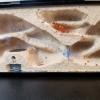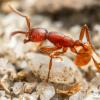I have read that sometimes people skip the first year of diapause for their colonies, particularly, when the colony has less than 10 workers.
What do you think about this? Is something to do? Does it have any benefit?
And if so, would you skip fridge and keep them with heat (as regular) or just at room temp?
I couldn't find a lot about this and I'll appreciate your experience.




















